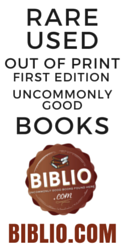Books, Bookselling, and a March Surprise
For five hundred years or so printed books have been about the cheapest and most practical way to spread the written word – it could be news of what’s going on at the moment, general or scientific information, or creative flights of mind and spirit. And when compared to many of the electronic alternatives these days, the renascent appreciation of the physical book as a useful as well as an aesthetically appealing artifact, seems to challenge the assumptions of many of the tub-thumpers for the newest Big Thing.
Electronic hardware changes, software applications change, and it can get really expensive buying essentially the same tool over and over again. However, if you own an 1885 Huckleberry Finn, paper version 1.0, your great grandchildren will still be able to read it without having to buy a new device or reader app(lication) software. Well, maybe a pair of reading glasses from the dollar store after they’ve reached a certain age.
Christopher Caldwell in the March 5/6 weekend edition of the Financial Times writes about Borders’ filing for bankruptcy protection in February of 2011. A lot of the time he’s wearing his Weekly Standard hat and since I’m not a fan of his foreign policy views, I sometimes skip over his columns. This one I found worth reading. Although much of it is old news, I was curious about his take on the seismic changes affecting the larger book world. “At least 200... stores are to close. Those that remain will continue the chain’s drift away from books, and towards cat calendars and stationery” (and) “Now that we may be headed towards a world with neither independent bookstores nor Borders, those of us who defended the big chain look like credulous tools of corporate propaganda” (and) “The forces that crippled it are the same ones that killed Tower Records, with the lag accounted for by the surprising fact that music wound up being easier than literature to digitize to customers’ satisfaction” and finally “The rise of Borders, in its own literary way, had something in common with the credit-stoked, real estate bubble. Easy money convinced average earners they could afford an extra bedroom or even a country house. Similarly, it convinced literary people in Tulsa, Oklahoma, that they could support a bookstore as big as Foyle’s and a literary market to match that of mid-20th century London.”
*
Difficulties and roadblocks of every sort have been affecting bookstores and booksellers for years and we’d be ostrich-like to ignore reality and pretend we all live in the Christopher Morley world of the early 20th century. With some notable exceptions, nowadays Roger Mifflin would definitely feel out of his element.
In 1937 Randolph Adams published (in the Library Quarterly, of all places) his famous essay “Librarians as Enemies of Books” mildly controversial at the time and then reprinted as a separate pamphlet for wider distribution. With books and bookstores it gets more complicated. The forces arrayed against them seem endless but in the end, I believe, books will have the last laugh.
Among the first challenges were the book clubs – cheaper editions of best-sellers for the most part, but some of the clubs offered more solid fare for readers of history, economics, philosophy, and other works of non-fiction. While sales of book club editions had a negative impact on small-town independent bookstores, their resale value in the antiquarian branch of the trade was next to nothing.
Then came the discounters who self-consciously creamed the market by cutting prices on best-selling titles with mass appeal – discount chains, wholesale clubs, and even supermarkets and drug stores got into the act. Publishers who gave in to the thuggish buying practices of the discounters began to realize that as independent bookstores began to disappear from Main Street, there was a shrinking retail market for their backlist. The independents had relied on sales from the best-sellers to subsidize expensive shelf-space for slower-selling titles. Still they hung on, but by an ever more slender thread.
The final blows came in quick succession – the mega-bookstores and then Amazon, the latter severely threatening survival of the former (see above). As large bookstores like Borders (known for their immense inventory) continue to close, there will be even less exposure and market for the solid backlist that in times past carried certain bragging rights for publishers. And when you read Roger Burlingame’s Of Making Many Books (Scribner’s, 1946), you’re really aware that you’re not in Kansas anymore.
Enough has been said over the years about high rents continuing to drive retail bookstores (especially antiquarian) away from prime locations in major urban markets – but now that Amazon’s mission seems to be to help bring about the final solution to the problem of bricks-and-mortar bookstores everywhere, the combined effect of the two economic forces will be difficult to resist. Ultimately, though, it’s the readers who will decide.
Blurb.com is one of the publishing-on-demand websites that will print and bind your manuscript and drop-ship your finished book to anyone who orders and pays for it on-line. In many ways it’s similar to the old vanity press model where aspiring writers could get their books published as long as they paid for the production costs, but when a few thousand books suddenly appeared on the writer’s doorstep the problem quickly became one of marketing and distribution. At least with the publishing-on-demand method, no trees are needlessly sacrificed and the balance between supply and demand is as efficient as it gets. Publishing-on-demand is also used for producing out-of-print books, although prices are sometimes higher than for copies already available in the trade. And in all forms of vanity publishing, editorial oversight is one of elements often lacking – especially important in works of non-fiction. Why do you think they call it non-fiction?
With e-books, some writers and agents are already cutting deals with Amazon, in some cases bypassing the traditional publisher altogether, and whether the literary agent or Amazon will be providing any sort of editorial guidance in the new publishing paradigm remains to be seen. More of the editorial responsibility would probably land on the shoulders of literary agents, otherwise many of the electronic books of the future could devolve into longer versions of what you see published all over the internet, some of it of questionable reliability.
Other forces arrayed against traditional antiquarian bookshops are also too widely known to rehash in any great detail here, but two are worth a brief mention. Library and charity book sales (with virtually no overhead, operating, inventory, or labor costs) have driven down the value of general used and antiquarian books to the point that many booksellers have told me they are paying less for books than they were in the early 1980s. For most of the past 15 years or so, book pricing on the internet has been a rat-race to the bottom yet lately we’re hearing more from book-buyers and bibliophiles complaining about how it’s getting harder to find bookstores where they can actually examine books before buying them (more often than not, on the internet) Really! Who would have thought?
Anthony Marshall’s latest “Notes from the Antipodes”, entitled The Slow Bookshop, begins on page 28 and is a refreshingly upbeat report on how one Australian bookseller has adjusted to the realities of the new marketplace. Anthony will be at this year’s Cooperstown Antiquarian Book Fair on Saturday, June 25th where he will be signing copies of Fossicking for Old Books (Melbourne, 2004). He will also be spending much of the week in Cazenovia and during the evening after the book fair will be guest of honor at BSM’s annual “Summer Solstice” party which has become something of an event in recent years.
*
More than a week has passed since writing the last paragraph. After returning from Jekyll Island in mid-March with a bad cough and an upper respiratory infection that went untreated for too long, I developed symptoms of what was ultimately diagnosed as Guillain-Barre Syndrome. Look it up, I won’t bore you with the details. Seven days in hospital flat on my back, one being my birthday, and five IVIG infusions, along with neurological tests – but now that I can walk again, I’m back in the office working in short bursts at half speed, struggling to meet deadline. Still some double vision that I hope won’t make a botch of final editing and proofreading. If so, please forgive. At this point I don’t need a triumphant twit pointing it all out.
I had plenty of time while lying in hospital to wonder about the fate of BSM. At first I thought that after 26 years, the last issue would have been the last. Mid-week I felt that we could publish, but a week or so later than usual. At the moment we’re not only on track, but the May/June issue should be mailed and shipped several days early, as the result of our typesetter having to do her work earlier than she normally does.
I have determined that in order for BSM to have a future, I’ll have to come up with a plan to take on a partner who will run the advertising, mailing list, and production end of things. I would be content with the writing and editing part, along with keeping in contact with some of our longtime advertisers, many of whom I’ve begun to think of as old friends. Our youngest daughter who lives in Virginia has offered to help – if the details can be worked out, that may be the solution.
At the moment I’m looking out the office window at the side-gardens, wondering if in a few weeks I’ll be recovered enough to plant dahlias and some of the early vegetables. This year I’ll also be trying out ranunculus, a short, compact plant with chrysanthemum-like leaves and flowers that remind me of nothing so much as some of our better roses. There were some on the grounds of the Jekyll Island Club a few weeks ago and I hope to duplicate their success. Also, we hope to attend the Hobart Book Village’s 6th annual Memorial Day weekend book sale. I’ll bet you didn’t even know there’s a real book town nestled in the Catskills.

























